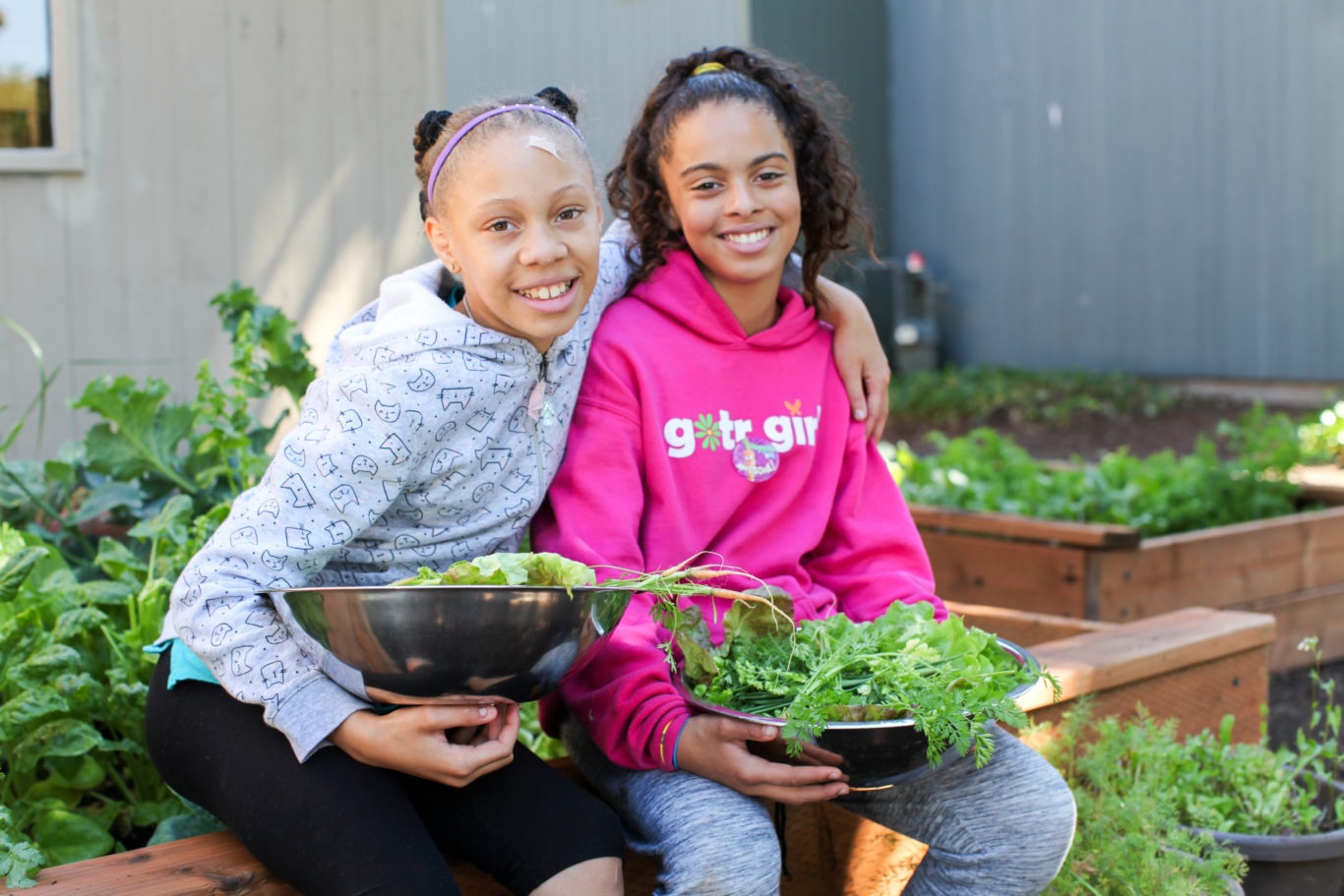Centering Single Mothers in the Fight to End Hunger and Poverty
Centering Single Mothers in the Fight to End Hunger and Poverty
By: From the OFB Equity, People & Culture Team
Women’s History Month conventionally celebrates the stories, experiences, and histories of women who fall into dominant cultural ideals of success, exceptionalism and broader concepts of “womanhood.” This approach leaves far too many stories of struggle and resilience untold — and tends to ignore the complex truths and experiences of women here in Oregon and across the country.
At Oregon Food Bank, we center the lives of everyday women. Women whose love and labor are often undervalued or invisibilized. Women who are forced to sacrifice due to longtime oppression and exploitation. Women who are expected to be strong while being villainized for that same strength. We especially center the experiences of single mothers — who face the highest food insecurity rates in the United States — and we advocate for their right to health, well-being, abundance and rest.
Single mothers, hunger and poverty
Across the United States, more than 24 million children live in single-parent households, which are five times as likely to experience poverty as married and dual-income households. Yet state and federal programs that help single mothers afford food, housing and utilities are consistently targeted with funding cuts and eligibility restrictions. What’s worse, single mothers are often disparaged and ridiculed just for accessing resources to support their families. Just one example: the “welfare queen” stereotype that is too often applied to single Black mothers, simply for accessing our social safety net.
These narratives are not only harmful; they’re completely void of facts. In truth, 80% of one-parent households in the US are led by single mothers. Nearly two-thirds of those moms are working outside the home at any point in time — a higher portion than married women — and the majority are working full-time hours or more, year round, to help make ends meet. Only one-third of single mothers receive any child support — and those who do receive less than $300 per month, on average.
Underlying policies and systems
The disproportionate hardship endured by single mothers is a strong indicator that current laws and practices are insufficient to prevent families from experiencing hunger, poverty and violence.
- In the United States, about one in four women report being impacted by sexual violence, physical violence and/or stalking by an intimate partner — more than double the impact reported by men.
- The persistence of a wide gender pay gap means that even full-time working mothers are paid significantly less in the workplace. Full-time working mothers lose an average of $17,000 per year due to the wage gap — and are paid about 74 cents to every dollar paid to single fathers. These pay inequities are even worse for mothers of color.
- Even the simple act of becoming a parent has a very different impact on women, as many are subjected to a motherhood penalty that can jeopardize a family’s economic security. Studies show that men are more likely to be rewarded as single parents — and even receive a fatherhood bonus when expecting or raising young children.
These disparities reveal the ways in which patriarchy and capitalism support men while exploiting women and people of other genders. Patriarchy creates an inescapable loop of critique and violence towards women, particularly single mothers. Unequal treatment and disparities in the workplace depress earning potential and opportunities for career advancement.
With these factors at work, it’s no wonder that food insecurity rates are highest for single-mother households — and the majority earn incomes below the poverty line. Addressing the pay gap and achieving systemic protections and support for single mothers is one of the surest paths to end hunger and its root causes in our communities.
Resources and support
It is our firm belief that food is a human right — that everyone should have access to fresh, healthy and culturally-familiar foods without having to sacrifice or struggle in order to make ends meet. Please join us in advocating for policies that support single mothers and by sharing the resources below.
- Support Black Mamas Matter to help advance Black maternal health, rights and justice
- Connect Portland mothers to PDX Diaper Bank
- Report violations of Oregon’s equal pay laws online or at 971-245-3844.
- Find information on community-based shelters, legal assistance and advocacy programs from Oregon Coalition Against Domestic & Sexual Violence
- Share free, 24/7 domestic violence and sexual assault hotline information
- A Call to Safety: 503-235-5333
- Linea UNICA: 503-232-4448
- Access family planning resources from Planned Parenthood and Oregon Adoption Services
